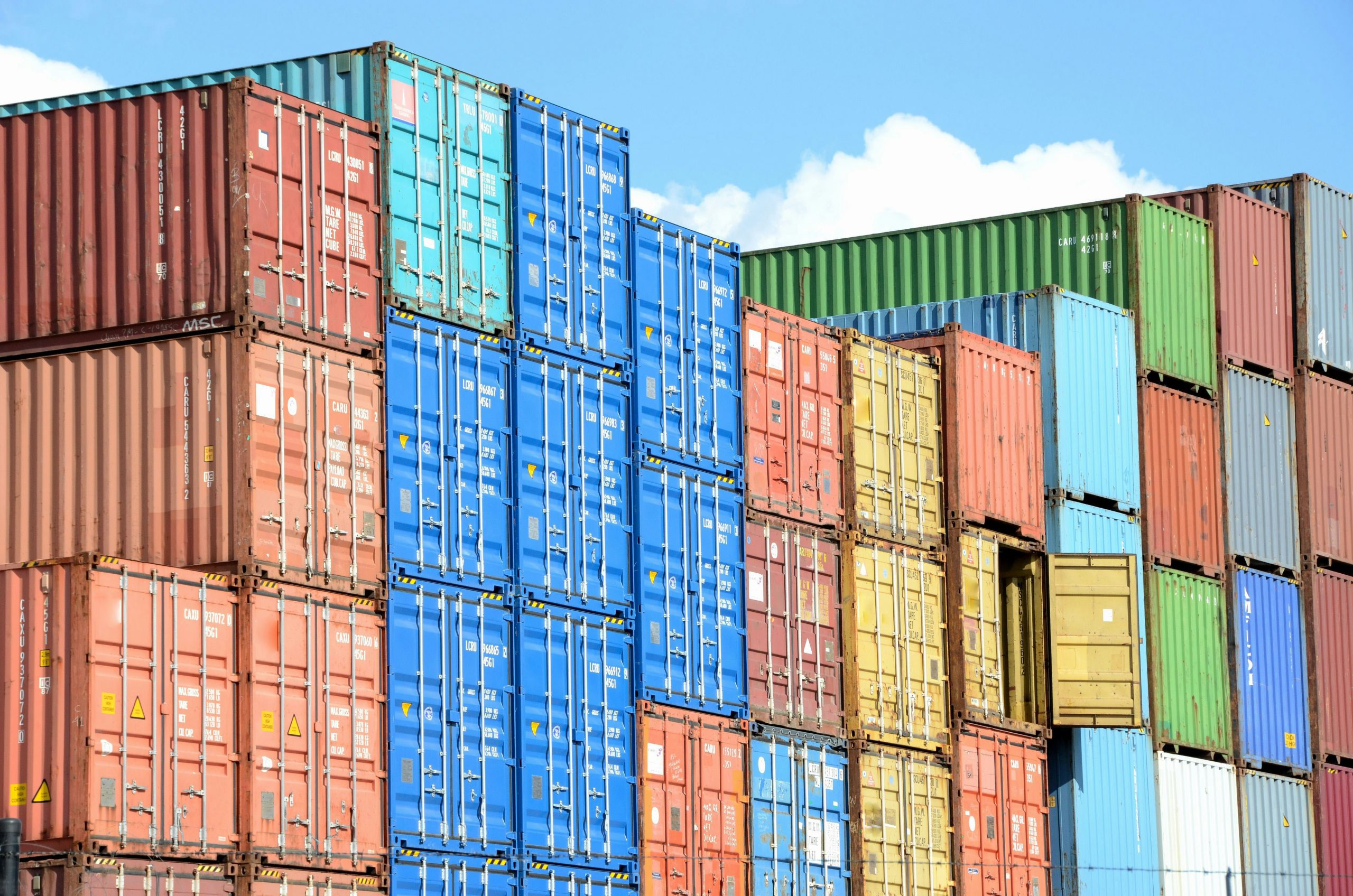Explore how evolving tariffs impact additives, colorants, and supply chains in the plastics industry. Learn how Techmer PM helps customers navigate cost, compliance, and sourcing challenges with innovative solutions.
What Are Tariffs?
Tariffs, as taxes a government imposes on imported goods, play a significant role in the plastics industry. Understanding the implications of these tariffs is crucial for all industry professionals, policymakers, and students interested in economics and trade.
These tariffs protect domestic industries from foreign competition by making imported goods more expensive. When tariffs are applied to these materials, the cost of importing them increases, leading to higher production costs for manufacturers who rely on these imports.
This, in turn, can result in higher prices for consumers and potential disruptions in the supply chain as companies seek alternative sources or adjust their production strategies to mitigate the impact of these tariffs.
The Changing Scenarios of Tariffs
As we move through 2025, evolving tariff policies heavily influence the global economic landscape. Recent geopolitical tensions and trade frictions have led to the imposition of new tariffs, particularly between major economies such as the United States and China.
The tariff situation is highly fluid, with new updates and changes occurring almost daily. This unpredictability makes it challenging for businesses to plan and manage their supply chains effectively.
Additives and Colorants Largely Affected by Tariffs
Larger volume resins are typically locally supplied and are therefore limited in impact by tariffs. There are, of course, notable exceptions. The products most impacted by tariffs are additives and colorants from various regions and countries. These include:
Commodity Reds and Yellows
Primarily sourced from China, these pigments are essential for vibrant, consistent color for a wide range of plastic products, including consumer packaging, toys and household goods, automotive interiors and trims, and construction materials like pipes and siding.
These pigments are often used in polyethylene (PE) and polypropylene (PP) applications.
Commodity Greens and Blues
Primarily sourced from India, these pigments are widely used in applications where cost efficiency and broad color coverage are essential, including:
- Consumer packaging: Used in caps, containers, and flexible films where vibrant color is needed at scale.
- Household goods and toys: Their affordability makes them ideal for high-volume, non-premium products.
- Recycled content applications: These pigments, often used to mask inconsistencies in post-consumer recycled (PCR) materials, play a crucial role in maintaining the visual appeal of products despite feedstock variability.
Phthalocyanine-based pigments, which dominate this category, are known for their excellent lightfastness and weather resistance, making them suitable for both indoor and outdoor applications.
Specialty Pigments
Specialty pigments, such as high-performance reds, blues, and greens from the EU, are engineered for demanding applications where aesthetics, durability, or regulatory compliance are critical. These pigments are used in:
- Automotive interiors and exteriors: Where color stability under UV exposure and heat is essential.
- Medical and pharmaceutical packaging: Where compliance with standards like USP661 and ISO 10993 is required.
- Optical and lighting components: Specialty pigments are used in LED housings, lenses, and laser-sensitive plastics for their clarity, dispersion, and color precision.
They also enable fluorescence, color effects, and infrared reflectivity, which are valuable in branding, safety, and technical performance.
Additives
Additives such as HALS (Hindered Amine Light Stabilizers), slip agents, flame retardants (FRs), and antimony play a critical role in enhancing the performance and safety of plastic products:
- HALS: Used to protect polymers from UV-induced degradation, especially in outdoor applications like agricultural films, automotive parts, and building materials.
- Slip agents: Improve surface lubricity and reduce friction in films and molded parts, common in packaging and consumer goods.
- Flame retardants (FRs): Essential in electronics, automotive, and construction materials to meet fire safety standards like UL 94.
- Antimony trioxide: Often used as a synergist in halogenated flame-retardant systems, particularly in textiles, electronics, and rigid packaging.
These additives are often combined with colorants and other functional ingredients to meet complex regulatory and performance requirements.

The Importance of Controlling Costs and Supply
At Techmer PM, we understand the importance of cost control and have been proactive in exploring various strategies to mitigate the impact of tariffs. By working closely with suppliers, we aim to identify alternative sources of raw materials that are less affected by tariffs. This approach helps manage costs and ensures a steady supply of materials, minimizing disruptions to production schedules.
Maintaining competitive pricing while ensuring product quality requires strategic planning and proactive measures. This is where our approach to managing tariffs and their impact on customers comes into play.
How Can Techmer PM Help You?
Techmer PM leverages advanced capabilities to qualify new alternative materials. These capabilities include:
Comparative Data
We maintain comprehensive comparative data on various raw materials. This data allows the company to evaluate alternative materials’ performance, cost, and availability against traditional options. By analyzing this data, we can make informed decisions about which materials to qualify and use in production, ensuring that customers receive high-quality products that meet their specifications.
Applications Lab
Our state-of-the-art applications lab is crucial in testing and qualifying new materials. The lab is equipped with cutting-edge technology and staffed by experienced professionals who conduct rigorous testing on alternative materials. This testing includes evaluating the materials’ physical properties, performance under different conditions, and compatibility with existing production processes. The applications lab ensures that any new materials meet Techmer PM’s high standards before they are introduced into the supply chain.
Testing Equipment
Techmer PM utilizes advanced testing equipment to thoroughly assess the quality and performance of new materials. This equipment includes specialized tools for measuring mechanical properties, thermal stability, chemical resistance, and other critical factors. We can confidently qualify new materials that offer comparable or superior performance to traditional options, even in changing tariff policies, by employing such sophisticated testing methods.
By integrating these advanced capabilities, we mitigate the risks associated with tariffs and ensures that customers have access to innovative and reliable materials. This comprehensive approach underscores our commitment to maintaining operational efficiency and competitiveness in a dynamic global market.
Regulatory Experience and Customer Requirements
In addition to its global sourcing strategy, we leverage our extensive regulatory experience to support customers. Navigating the complex landscape of international trade regulations requires a deep understanding of compliance requirements and the ability to adapt to changing rules. Our regulatory team ensures that all materials and products meet the necessary standards, regardless of origin.
This expertise is crucial in helping customers maintain compliance and avoid potential penalties or disruptions. By staying ahead of regulatory changes and proactively addressing compliance issues, Techmer PM provides a layer of assurance to its customers.
Our extensive regulatory experience is another critical factor in helping customers navigate the complexities of tariffs and other trade-related challenges. The company has a proven track record of meeting stringent regulatory standards across various industries, including healthcare, automotive, and consumer goods. This expertise ensures we can continue providing high-quality materials that meet customer specifications, even in an environment with rapidly changing trade policies.
The ever-changing landscape of tariffs presents significant challenges for businesses worldwide. For Techmer PM customers, controlling costs and ensuring a stable supply of materials is crucial to maintaining operational efficiency and competitiveness. Through its proactive approach to sourcing qualified alternatives for raw materials and leveraging its extensive regulatory experience, Techmer PM is well-positioned to help customers navigate these challenges.
